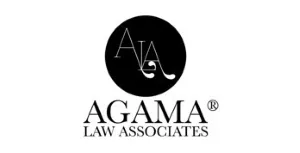- within Corporate/Commercial Law topic(s)
- within Corporate/Commercial Law, International Law and Family and Matrimonial topic(s)
Twenty years ago, promoters operated with reasonable confidence that corporate form provided liability insulation. Regulatory violations triggered corporate penalties. Shareholder disputes rarely reached personal assets. The corporate veil held.
That assumption no longer reflects litigation reality in India, particularly for ESG-related failures. Courts, tribunals, and regulators increasingly pierce corporate protection to impose personal consequences on promoters and directors (financial liability, criminal prosecution, and professional disqualification). The shift reflects a fundamental premise: ESG failures don't result from corporate systems malfunctioning. They result from individuals making choices, and those individuals should bear consequences.
Understanding when and how personal liability attaches has become essential risk management for promoters navigating public markets.
When Corporate Veils Pierce: The Legal Framework
Indian law provides multiple pathways for establishing personal liability against promoters, each triggered by different circumstances but sharing common themes: promoter control, knowing participation, and personal benefit.
Section 339 of the Companies Act enables courts to hold officers personally liable for fraudulent trading when business is conducted with intent to defraud creditors or for fraudulent purposes. ESG misstatements that mislead investors or creditors about company fundamentals increasingly trigger fraudulent trading analysis.
Section 447 of the Companies Act imposes criminal liability for fraud on directors, key managerial personnel, and officers. Penalties include imprisonment up to ten years and fines up to three times the amount involved in the fraud. Environmental misstatements or governance violations that induce investment can constitute fraud under this provision.
Sections 241-244 oppression and mismanagement provisions allow courts to impose personal liability on promoters for conduct prejudicial to company or shareholder interests. Courts have interpreted these sections expansively to address ESG failures that harm minority shareholders.
SEBI Act Sections 11, 11B provide disgorgement and penalty authority directly against individuals, not just companies, for securities law violations including disclosure failures. SEBI routinely names promoters individually in enforcement proceedings for ESG misstatements.
The common thread: personal participation, knowledge, or benefit overcomes corporate form protection. Promoters cannot hide behind corporate structure when they direct the violative conduct.
Criminal Prosecution Trends in ESG Violations
Environmental and workplace safety failures increasingly trigger criminal prosecution of directors and promoters, not just corporate entities. The legal framework has existed for decades, but enforcement intensity has increased substantially.
Bharatiya Nyaya Sanhita (Section 288) (previously IPC Section 304A) addresses death by negligence. When workplace fatalities occur (factory accidents, construction site deaths, logistics mishaps) prosecution routinely names company directors arguing that inadequate safety investments constitute criminal negligence. Conviction carries imprisonment up to two years.
Factories Act (Section 92) makes occupiers and managers criminally liable for violations resulting in worker injury or death. Courts increasingly reject defenses that the director delegated safety responsibility to site managers, holding that ultimate accountability rests with those controlling the company.
Environment (Protection) Act (Section 15) and corresponding state pollution control legislation impose criminal liability including imprisonment up to five years for violations. Directors cannot claim ignorance of environmental non-compliance when evidence shows they approved budgets inadequate for pollution control equipment or ignored repeated regulatory notices.
BNS (Section 272) (previously IPC Section 278) addresses making atmosphere noxious to health. Industrial pollution violations that harm community health trigger prosecution against promoters and directors personally, particularly when violations were known and continued.
The prosecution strategy has evolved. Rather than pursuing only the corporate entity and paying modest fines, authorities now name individual directors, seeking conviction and imprisonment. Even when cases settle before conviction, the reputational damage and legal costs prove substantial.
SEBI's Disgorgement Authority: Piercing Asset Protection
SEBI's disgorgement power under Section 11B represents the most financially significant personal liability risk for promoters in ESG failures. The authority is expansive and consequences severe.
Disgorgement requires violators to surrender illegal gains, calculated as the benefit obtained from the violation plus interest. For ESG misstatements, SEBI calculates disgorgement as the incremental valuation premium the company received due to false disclosures.
The methodology: SEBI determines what valuation the company would have received with accurate disclosures, compares to actual valuation received, and attributes the difference to the misstatement. This differential, multiplied by the promoter's shareholding, becomes the personal disgorgement liability often running into hundreds of crores for significant IPOs.
Case pattern example: A company claims industry-leading governance standards in its offer document, achieving IPO valuation of ₹5,000 crore. Post-listing investigations reveal systematic related party transaction violations benefiting promoters, inadequate board oversight, and suppressed whistleblower complaints. SEBI determines that accurate governance disclosures would have yielded ₹3,500 crore valuation, a ₹1,500 crore differential.
The promoter group holding 55% faces ₹825 crore disgorgement liability personally, plus penalties under Section 15HA potentially reaching ₹25 crore per violation. The corporate veil provides no protection when SEBI pursues personal assets including real property, equity holdings, and bank accounts through attachment orders.
National Green Tribunal: Personal Environmental Liability
The National Green Tribunal Act enables courts to impose personal liability on directors and officers for environmental violations under the polluter pays principle. NGT orders increasingly pierce corporate protection to reach individual wealth.
NGT's approach differs from traditional civil liability. The tribunal imposes remediation obligations requiring violators to fund environmental restoration plus compensation for environmental damage calculated by expert committees. The amounts often dwarf traditional penalty provisions.
Typical scenario: A manufacturing company's effluent discharge pollutes groundwater affecting 50,000 residents across ten villages. NGT proceedings establish corporate liability of ₹200 crore for remediation and compensation. The tribunal then examines director involvement.
Evidence shows:
– Board presentations warned of inadequate effluent treatment capacity
– Directors approved expansion plans without corresponding environmental infrastructure investment
– Management repeatedly postponed remediation despite regulatory notices
– Promoters extracted dividends while deferring environmental capital expenditure
NGT pierces the corporate veil, holding promoters jointly and severally liable for the ₹200 crore obligation based on knowing participation in decisions prioritizing profits over environmental compliance. The order attaches personal property pending payment.
The promoters' defense that they relied on management representations about compliance fails. Courts hold that directors have non-delegable duties to ensure environmental compliance, and willful blindness constitutes culpable knowledge.
Derivative Suits: Minority Shareholders Pursuing Personal Recovery
Section 245 derivative suits enable shareholders to pursue claims on the company's behalf against directors who breached fiduciary duties. The mechanism allows minority shareholders to reach director personal assets for losses caused by governance failures.
ESG failures provide fertile ground for derivative litigation. When environmental violations trigger regulatory penalties, when labor practice failures result in class action settlements, when governance lapses enable fraud losses, minority shareholders file derivative suits seeking personal recovery from directors whose misconduct caused these losses.
The derivative suit advantage: Unlike direct shareholder suits requiring proof of individual injury, derivative suits address harm to the company itself. The damages include regulatory penalties, settlement costs, remediation expenses, reputational losses run into hundreds of crores. Corporate indemnification provisions don't protect directors from liability for breach of fiduciary duty, and D&O insurance typically excludes deliberate misconduct.
Pattern case: A company's audit committee approves a series of related party transactions at non-market terms, benefiting promoter entities. Over five years, the company transfers ₹300 crore of value to the promoter group through these transactions. Post-IPO, minority shareholders file derivative suits against the promoter-directors who approved these transactions.
The court finds breach of fiduciary duty where the directors prioritized personal interest over corporate welfare. The judgment orders personal disgorgement of ₹300 crore plus interest from the promoter-directors, piercing their personal assets to satisfy the judgment. The corporate veil provides no protection when directors breach fiduciary obligations for personal benefit.
Professional Disqualification: The Career-Ending Consequence
Beyond financial liability, ESG failures increasingly trigger director disqualification, with professionally devastating consequences that end promoter careers in public markets.
SEBI debarment proceedings under Section 11 prohibit individuals from holding director or key managerial positions in listed companies, accessing securities markets, or associating with any market intermediary. Debarment periods range from 1-10 years depending on violation severity, with permanent debarment possible for egregious cases.
Companies Act Section 164(2) disqualifies directors convicted of fraud or misfeasance involving company affairs for five years post-conviction. ESG-related fraud convictions including environmental misstatements, governance violations, trigger automatic disqualification.
Competition Commission can prohibit individuals from holding director positions in any company for contravention of competition law provisions, increasingly relevant for ESG-related cartel behavior in environmental compliance or labor practices.
The practical consequence: a promoter built a business over twenty years, navigated a successful IPO, then faced permanent exclusion from public markets due to ESG enforcement. The personal wealth accumulated becomes irrelevant when professional identity as a corporate leader ends.
Protecting Personal Assets: The Risk Management Framework
Promoters must architect ESG infrastructure recognizing that corporate protection is conditional, not absolute. Personal liability prevention requires different thinking than corporate compliance.
Personal liability insurance proves inadequate. D&O policies exclude deliberate misconduct, fraud, and personal profit situations—precisely the circumstances where ESG failures trigger personal liability. Promoters cannot insure their way out of knowing violations.
Corporate indemnification has limits. Companies can indemnify directors for actions taken in good faith, but not for fraud, breach of fiduciary duty, or deliberate violations. ESG failures that demonstrate knowing misconduct fall outside indemnifiable conduct.
The only reliable protection is prevention. Build ESG infrastructure that makes personal liability claims factually insupportable:
Document defensive decision-making. Board resolutions should reflect substantive engagement with ESG risks, questions raised, expert advice obtained, and reasons for decisions made. When litigation examines director conduct, comprehensive records demonstrating diligent consideration provide powerful defense against personal liability claims.
Implement genuine governance separation. Independent directors must actually be independent, willing to challenge management, equipped with information and authority to investigate concerns, and protected from retaliation. Courts distinguish between boards that provide genuine oversight and boards that provide promoter insulation. Only the former protects against personal liability.
Address problems immediately when identified. The pattern that triggers personal liability: problems identified, warnings given, action deferred. When internal audits reveal control deficiencies, whistleblowers raise concerns, or regulatory notices cite violations, immediate remediation and documentation of remediation proves essential. Deferred action converts negligence into willful blindness.
Ensure compensation structures don't incentivize violations. When director compensation is primarily equity-based and short-term focused, courts may find that personal financial incentives drove ESG failures. Balanced compensation with long-term vesting and clawback provisions demonstrates alignment with sustainable company performance.
The question isn't whether personal liability risk exists, it demonstrably does. The question is whether your ESG decisions can withstand judicial scrutiny years later, when opposing counsel presents your internal communications showing you knew about the problem and chose inaction.
The promoters who treat ESG infrastructure as genuine risk management, not compliance theater, build protection against personal liability. Those who view it as marketing discover that corporate veils are thinner than they assumed and the courtroom is where that assumption gets tested.
The content of this article is intended to provide a general guide to the subject matter. Specialist advice should be sought about your specific circumstances.


